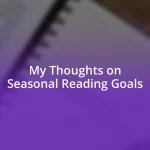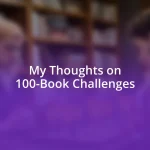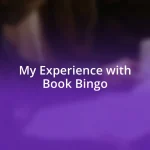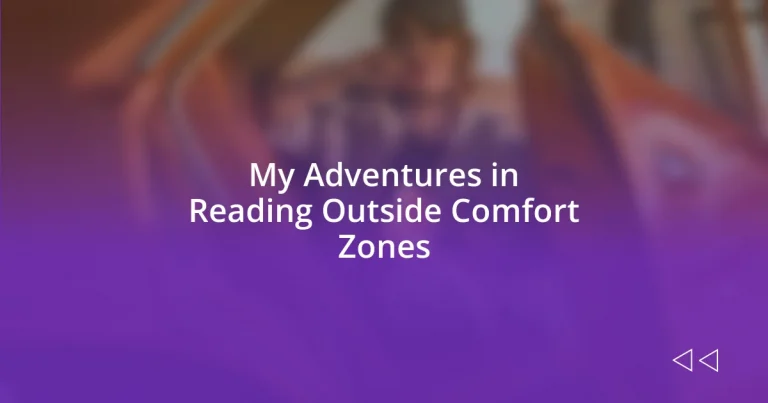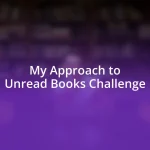Key takeaways:
- Stepping outside comfort zones in reading can lead to unexpected growth and joy, revealing new perspectives and enriching personal experiences.
- Recognizing individual reading preferences fosters a deeper connection to literature, as it reflects personal experiences and emotional states.
- Engaging in discussions about diverse readings enhances understanding and insight, showcasing the value of sharing perspectives within a community.
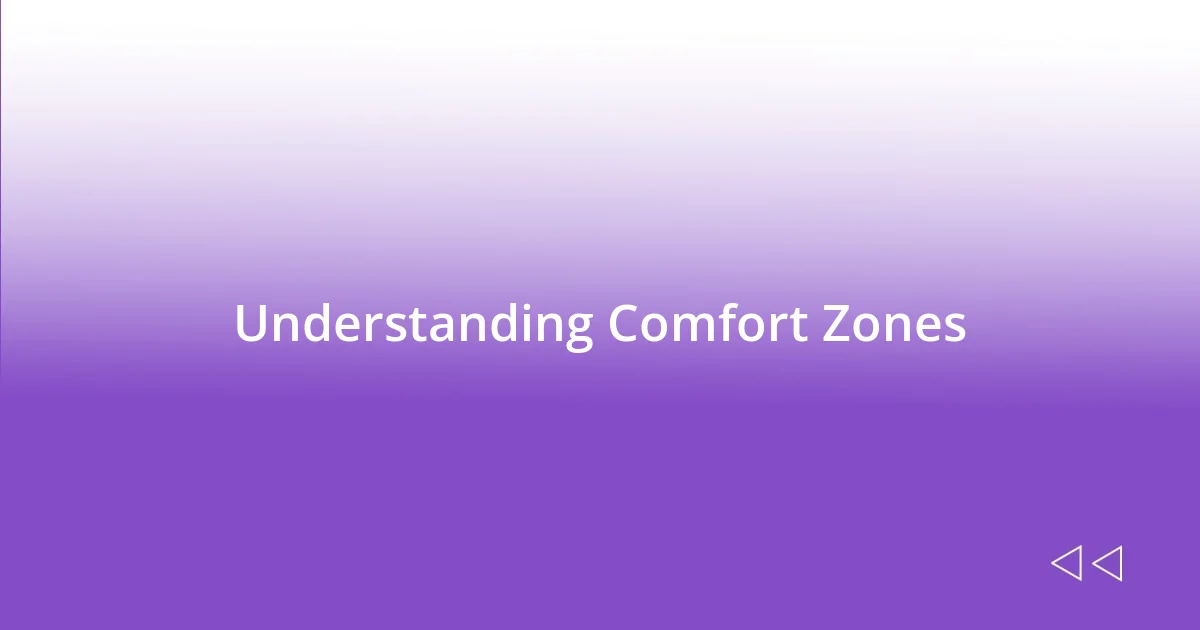
Understanding Comfort Zones
Comfort zones are those familiar spaces where we feel safe and secure, often filled with routines, habits, and preferences that shape our daily lives. I remember a time when I gravitated towards the same genres in books, always sticking to the thrillers and mysteries that sparked my curiosity. Why did I avoid venturing into romance or fantasy? I think, sometimes, we cling to what we know, fearing the discomfort that may come with trying something new.
When I finally stepped outside my literary comfort zone, it felt like stepping into an unknown world filled with both excitement and anxiety. I experienced the flutter of apprehension when I picked up a book from a genre I hadn’t explored before, wondering if it would resonate with me. It made me reflect on how much we restrict ourselves, not just in reading but in life—do we shy away from new experiences because they challenge our perception of ourselves?
Understanding comfort zones is essential because they can limit our growth and exploration. It’s interesting how much we miss by staying nestled in our predictable choices. The thrill of discovering new authors and styles has enriched my reading journey in ways I never expected, reminding me that stepping into unfamiliar territory can lead to unexpected joys. What have you missed out on by not breaking out of your own comfort zone?
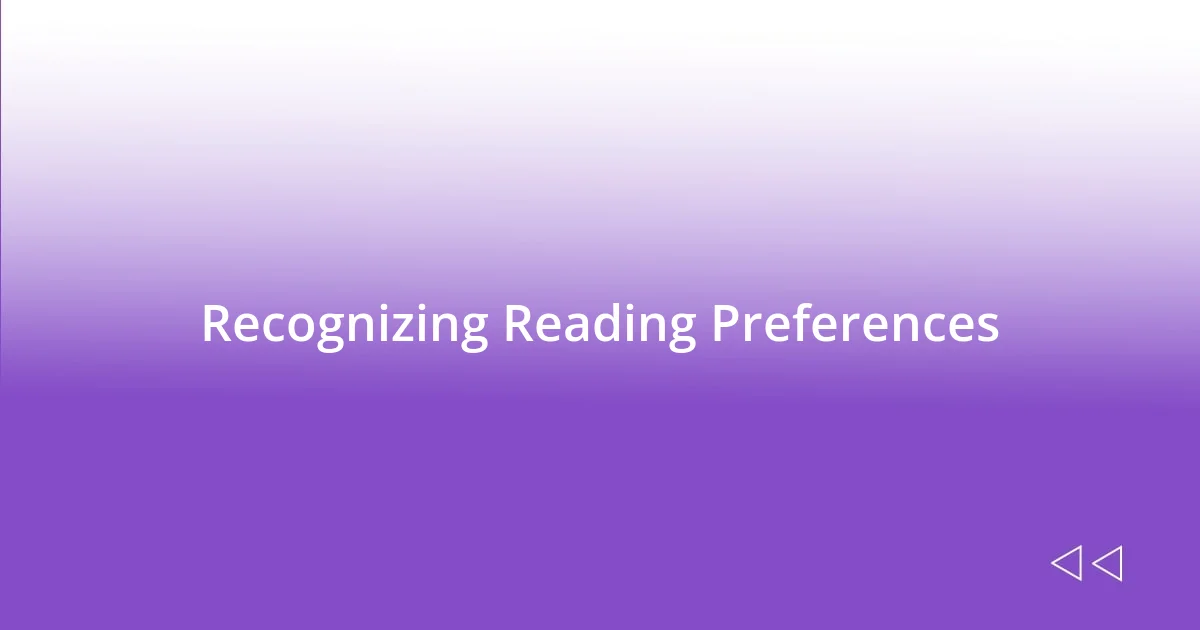
Recognizing Reading Preferences
Recognizing your reading preferences truly opens the door to understanding yourself better. I remember when I first started tracking what I gravitated towards; I was surprised to find that my favorites weren’t just thrillers but also a hidden love for memoirs. Reflecting on this helped me realize that my taste was shaped by life experiences and moods, revealing layers of my personality I hadn’t considered before.
To help identify your own reading preferences, consider these aspects:
– Genre Affinity: What genres naturally draw you in? Note how they make you feel.
– Mood Connection: Do you prefer light-hearted reads when you’re happy and darker themes when you’re feeling introspective?
– Character vs. Plot: Do you find yourself captivated by character development, or are you more interested in the intricacies of the plot?
– Reading Environment: Are there certain places or times when you feel more inclined to read?
– Feedback: Pay attention to friends’ recommendations—sometimes others see things in us that we overlook.
Recognizing these nuances not only expands our reading horizons but also fosters a deeper connection to the stories we choose. It’s like holding up a mirror to ourselves through literature, showcasing how our preferences reflect our experiences and emotions.
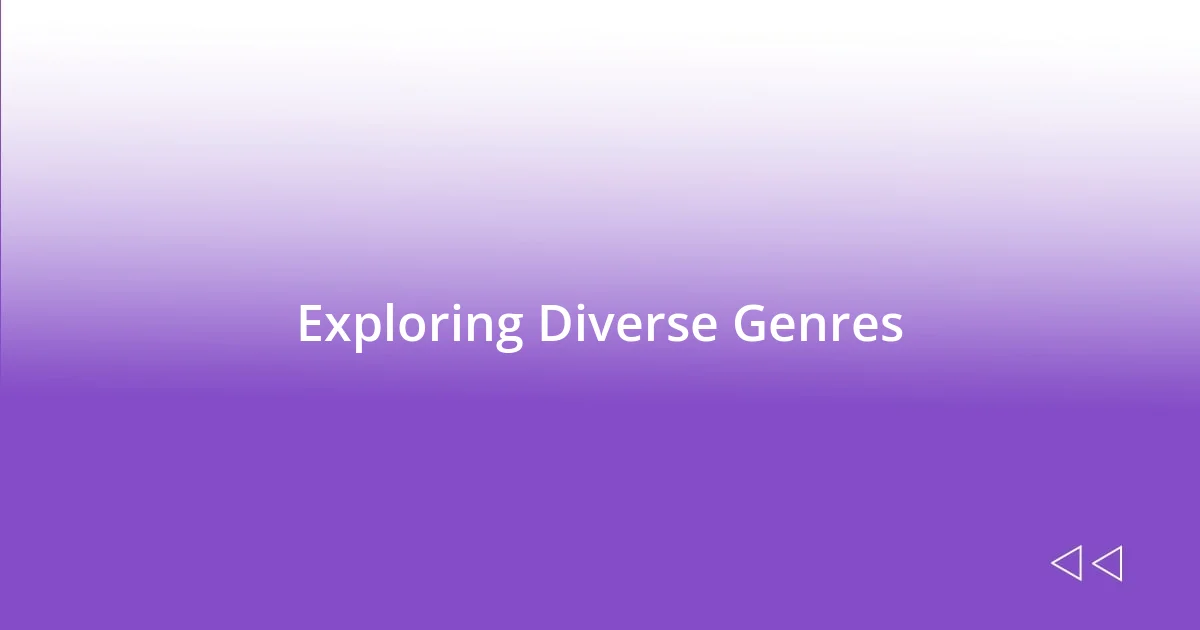
Exploring Diverse Genres
When I first dared to explore genres like sci-fi and magical realism, it was a revelation. Imagine diving into a world where the impossible becomes possible; I found myself swept away by the creativity and expansive ideas these genres offer. Each page turned was a reminder that I had limited my own imagination by sticking to familiar narratives.
Engaging with diverse genres has enriched my understanding of storytelling. For instance, I discovered cultural perspectives in historical fiction that broadened my world view. It made me realize how a single genre can hold a mirror to various societal issues and histories, making me more empathetic. What can we learn from stories set in different times and places? I believe these narratives push us to reflect on our own lives and beliefs, fostering personal growth.
Additionally, reading across genres often brings unexpected emotional experiences. Picking up a heart-wrenching literary fiction piece after a light-hearted fantasy was challenging yet rewarding. It reminded me that every story holds the potential to evoke deep emotions, shaping our experiences as readers. Have you ever felt a profound shift in your mood after reading something outside your usual preference? That’s the magic of exploring diverse genres—it’s like unpacking a treasure chest of emotions and insights.
| Genre | Emotion Evoked |
|---|---|
| Sci-Fi | Wonder and Curiosity |
| Magical Realism | Intrigue and Reflection |
| Historical Fiction | Empathy and Awareness |
| Literary Fiction | Profound Connection |
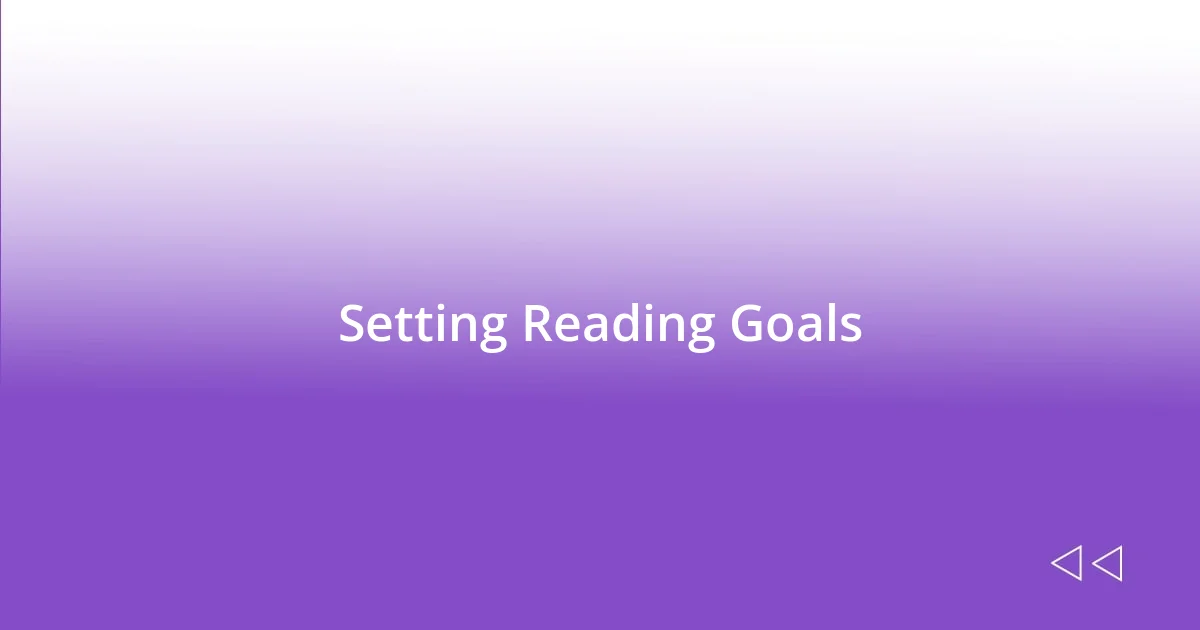
Setting Reading Goals
Setting reading goals can be a transformative experience, especially when stepping outside your comfort zone. I remember the year I decided to read one book from a different genre each month. It was ambitious but exhilarating! What surprised me most was how these goals motivated me to explore narratives I otherwise might have ignored, like poetry or graphic novels.
To make your reading goals more effective, I suggest being specific and realistic. For instance, instead of just saying, “I want to read more,” you could set a goal like, “I’ll read two non-fiction books by the end of the month.” This approach not only measures your progress but also encourages consistency. I found that breaking larger goals into smaller, weekly targets kept me engaged and less overwhelmed.
Moreover, it’s essential to evaluate your experiences post-reading. After each book, I reflect on what I learned and how it challenged my perspectives. This practice has deepened my appreciation for diverse voices in literature. Have you ever noticed how a single book can shift your view on a crucial issue? Setting goals to read thoughtfully can make such eye-opening experiences a regular part of your life.

Engaging with Challenging Material
Engaging with challenging material can be an eye-opening experience that pushes us beyond our limits. I vividly remember picking up a dense philosophy text that seemed daunting at first. To my surprise, wrestling with complex ideas like existentialism not only broadened my intellectual horizons but also ignited a passion for questioning my own beliefs. Have you ever felt that rush when concepts start to click, and suddenly your perspective shifts?
When diving into challenging reads, I found it helpful to approach them with curiosity rather than fear. For instance, I tackled a collection of avant-garde poetry, which initially left me puzzled. The joy came when I embraced the ambiguity and let the language wash over me, unlocking a deeper appreciation for expression. How often do we shy away from what confounds us, rather than leaning into it for growth?
I’ve realized that engaging with difficult texts often reveals layers of understanding I hadn’t expected. For example, after grappling with a complex novel, I found myself connecting its themes to real-world issues, reinforcing the notion that literature serves not just as escapism, but as a mirror to life. Have you ever discovered insights in a book that resonated with your personal experiences? Those moments remind me that challenging material can spark profound reflection and personal transformation.
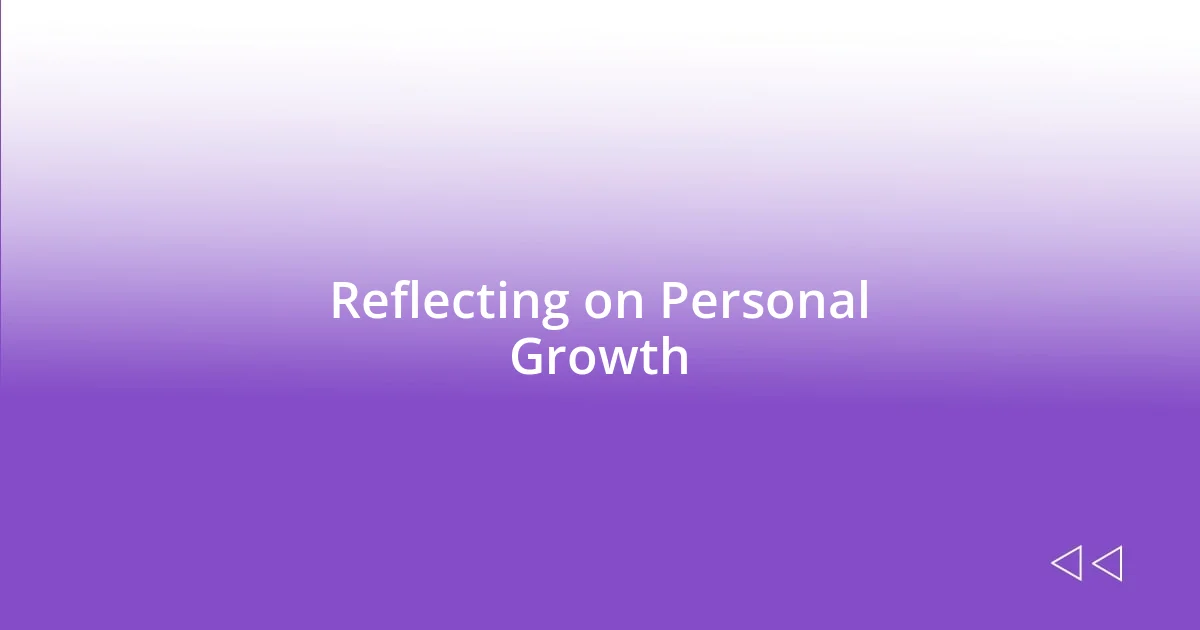
Reflecting on Personal Growth
Reflecting on my journey through diverse reading genres has allowed me to uncover unexpected aspects of myself. I remember tackling a memoir that delved into the lives of individuals completely different from my own. It struck me how their experiences mirrored some of my hidden fears and aspirations, prompting me to rethink my preconceived notions about resilience and hope. Have you ever found pieces of your own story in someone else’s words?
I’ve often found that books outside my usual preferences stir emotions I didn’t know I had. Reading a historical fiction novel set in a time of turmoil brought tears to my eyes, not only due to the characters’ struggles but also because it forced me to confront the fragile nature of peace in our lives. This process of emotional reckoning has become a crucial aspect of my personal growth, reflecting how literature can bridge the gap between our lived experiences and the journeys of others.
Through this ongoing exploration, I’ve learned that growth is often messy and nonlinear. For instance, there were moments when I questioned whether I should even continue reading certain challenging texts. Yet, those moments of doubt have taught me persistence and the value of grappling with discomfort. How often do we give up just before discovering something profound? Facing what is difficult not only expands our horizons but also nurtures deeper empathy—an essential aspect of who we become.
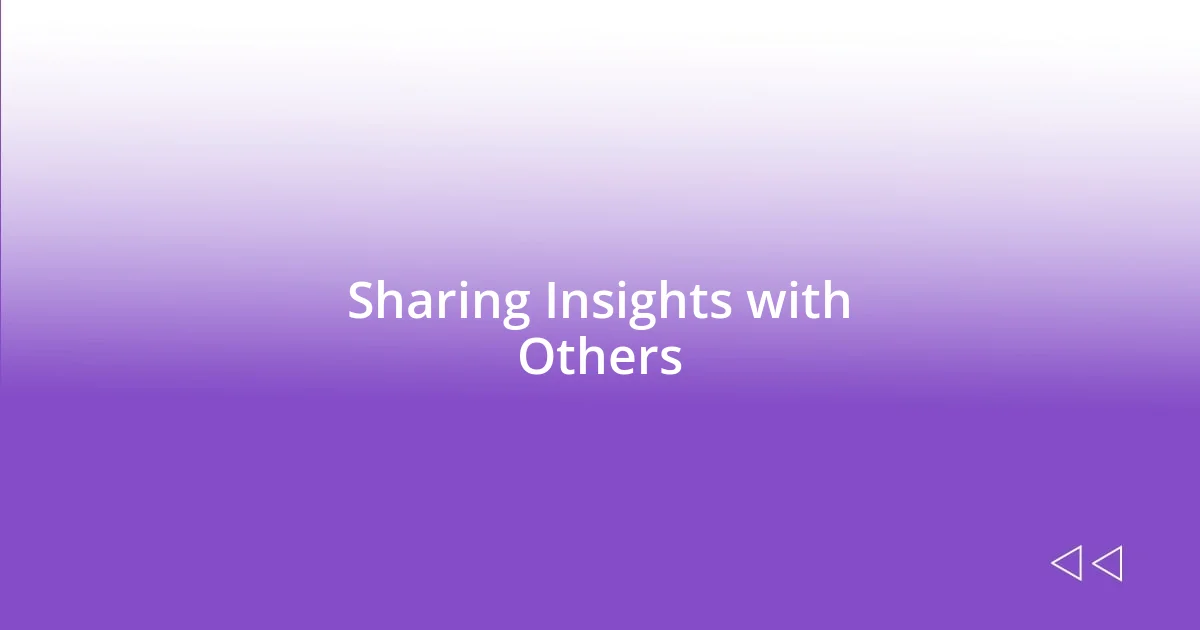
Sharing Insights with Others
When I share my insights from reading outside my comfort zone, it often becomes a shared journey. I remember discussing a thought-provoking dystopian novel with a group of friends, and their interpretations opened my eyes to themes I had overlooked. Isn’t it fascinating how different perspectives can highlight the nuances in a story, transforming our understanding?
I’ve noticed that engaging in these discussions often deepens the impact of our reading experiences. For instance, after diving into a gripping memoir, I began to connect with others who had similar responses, leading to richer conversations about trauma and resilience. There’s something powerful about revealing your insights and discovering that others feel the same way—it’s like creating a tapestry of shared human experience.
Sometimes, simply articulating my thoughts on a book feels like unraveling a puzzle. I fondly recall a book club meeting where we dissected a complex narrative— our debates sparked new ideas and challenged my initial interpretations. How often do we leave a conversation feeling inspired, as if the act of sharing has deepened our own understanding rather than exhausted it? It’s in those moments that I realize the value of community in our literary explorations—together, we uncover layers we might never see alone.






